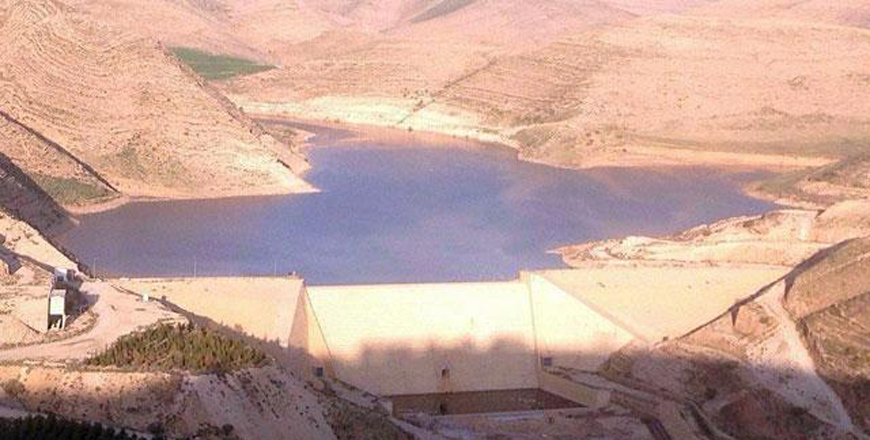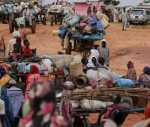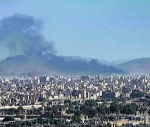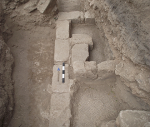You are here
Impact of hydropolitics: Addressing water scarcity in Jordan
By Saeb Rawashdeh - Mar 14,2024 - Last updated at Mar 14,2024

The agricultural land above the Dead Sea (Photo by Saeb Rawashdeh)
AMMAN — Due to its arid climate and increasing population, Jordan’s water resources are rapidly depleting and without significant interventions, the situation is likely to further deteriorate. According to the UNICEF report for the last year, less than 100 cubic metres of renewable water resources are available per person annually in Jordan, which is already significantly below the 500 cubic metres threshold of “absolute water scarcity”.
Water stress levels are expected to increase at an average annual rate of 1 per cent–1.5 per cent until 2100, making more than 90 per cent of low-income households in Jordan subject to critical water vulnerability.
Reduction of water supply has a direct negative impact on the Jordanian agriculture and can cause food scarcity. The social effect of water and food scarcity can create serous economic strains in Jordan and the region.
Water scarcity is a research theme of Frederick Wojnarowski, a British economic and political anthropologist from the London School of Economics. Wojnarowski is working with Jordanian researchers to understand the impact of hydropolitics at the level of everyday water users.
According to Wojnarowski, water scarcity is one of the major problems in the region after the refugee crisis and the political turmoil, so the water sector receives considerable international research, investment and development interventions.
“There are so many new water initiatives, institutes and consultants working in Amman,” said Wojnarowski.
Jordan has been one of the most water-scarce countries in the world, and the problem is made much worse by transboundary water disputes with neighbouring countries. However, what he is interested in what these official narratives leave out, especially the large percentage of water lost before it reaches its intended user — so-called non-revenue water.
“Jordan is constrained by a water scarce environment, and increasingly so with climate change,” the scholar said, adding that the social consequences of scarcity and the ways ordinary people experience and manage it are poorly understood.
The water sector in Jordan has been well studied by different pundits and organisations like the World Bank and the UNICEF, but the accuracy of much of the underlying data is doubtful, Wojnarowski claimed, as the everyday water realities faced by different communities are not “especially amenable” to technocratic understandings and solutions, and much of the water system is hard to quantify for state agencies. The understanding of socioeconomic aspects of water in people’s daily life is necessary to tackle water related issues, Wojnarowski stressed.
“We have been doing a deep dive into the social life of water through a domestic user survey. We are finding the ways people experience water stress are quite unequal, varying between areas and classes. Although everyone is talking about a water crisis, people understand this crisis and its causes in very different ways” Wojnarowski said.
An important issue is the problem of water theft, Wojnarowski said, noting that leakage due to malfunctioning infrastructure is another issue, and one which recent huge spending by USAID and the EU on infrastructural upgrades to the Miyahuna network had failed to fully address.
Wojnarowski added that water, food and energy are inseparable subjects.
“You can’t work in one of these sectors without affecting the other two,” he said, pointing out that a third of Jordan’s electricity is used to move water around, and especially pump groundwater and that groundwater over-abstractionis not only irreparably depleting fossil aquifers, but was leading to increasing soil salinity — a major problem for agriculture. Ultimately, as Amman’s population grows, there is a trade-off between using groundwater and water from the King Abdullah Canal for domestic potable water or for irrigation.
Wojnarowski plans to use this study to better understand the role of water in ensuring environmental justice.
Related Articles
AMMAN — While water scarcity in Jordan has been widely researched, mainly from an engineering perspective, less is known from the water poli
AMMAN — Jordan grapples with water scarcity, which is interconnected between rainfall and groundwater levels.
AMMAN — The Ministry of Water and Irrigation on Wednesday concluded its awareness campaign to protect groundwater resources in Ajloun.
















